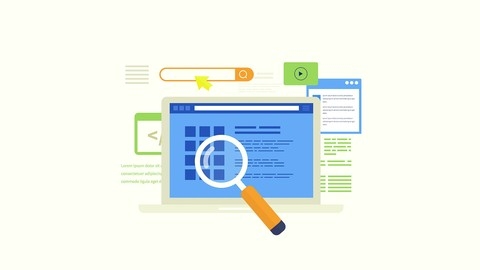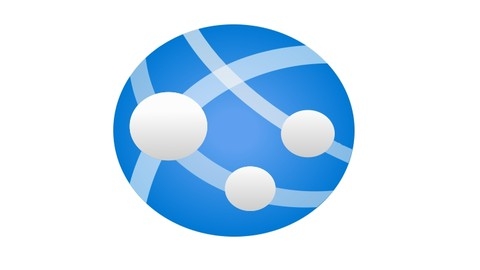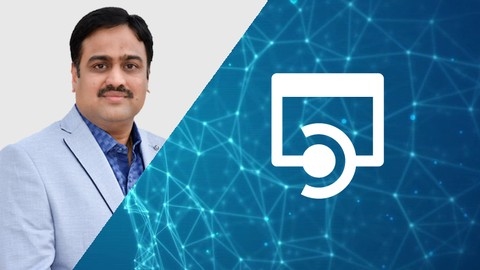Azure App Services is a powerful Platform as a Service (PaaS) offering from Microsoft Azure, providing a managed environment for deploying and scaling web, mobile, and API applications.
It simplifies development and deployment by handling infrastructure management, allowing developers to focus on building and innovating.
By learning Azure App Services, you can develop, deploy, and manage robust and scalable applications in the cloud, becoming a valuable asset in any development team.
Finding the right Azure App Services course on Udemy can be a challenge, with a vast array of options available.
You want a course that’s both comprehensive and engaging, taught by experts, and tailored to your learning style and goals.
You’re looking for a program that goes beyond theory and offers hands-on experience to solidify your understanding.
We’ve carefully analyzed numerous Udemy courses and identified Azure Platform as a Service–Web & APIApplication Deployment as the best overall choice.
This comprehensive course covers everything from the basics of App Services to advanced deployment and management techniques.
You’ll gain practical skills in building, deploying, and securing web and API applications, along with managing databases and leveraging Azure’s data processing capabilities.
This is just the beginning of our exploration into the best Azure App Services courses on Udemy.
Keep reading for more recommendations for different learning styles and goals, from beginner-friendly introductions to advanced courses focused on specific aspects of Azure App Services.
Azure Platform as a Service–Web & APIApplication Deployment
This course is your comprehensive guide to deploying web and API applications on the Azure Platform as a Service (PaaS).
You’ll gain the knowledge and skills to build, deploy, and manage robust, scalable applications in Azure’s cloud environment.
Starting with the fundamentals of App Services, you’ll explore different types of App Plans, pricing options, and configuration methods using both the Azure portal and command-line tools.
You’ll learn to secure your applications with authentication and authorization mechanisms, and implement effective logging for monitoring and troubleshooting.
Next, you’ll delve into optimizing your web applications for peak performance.
Discover how to leverage Content Delivery Networks (CDNs) to deliver content quickly to users worldwide.
You’ll explore a variety of database options, including Azure SQL, MySQL, and PostgreSQL, to manage your application data effectively.
Learn how to utilize NoSQL databases like Azure Table Storage and Redis Cache for storing structured and semi-structured data.
The course also guides you through Azure’s powerful data processing capabilities.
You’ll learn how to transform and process data, leverage full-text search for efficient data retrieval, and utilize Azure’s messaging services to build event-driven applications.
You’ll discover how to integrate your applications with Azure Data Catalog, a valuable tool for organizing and discovering data across your organization.
This course is your stepping stone to building and deploying successful web and API applications on Azure.
You’ll gain practical knowledge and hands-on experience with the essential tools and services needed to excel in this dynamic cloud environment.
Azure App Services for Developers
This course is a comprehensive deep dive into Azure App Services, designed to equip you with the skills to build, deploy, and manage powerful applications in the cloud.
You’ll start by understanding the fundamentals of Azure App Services, covering topics like creating App Service plans and web apps using Visual Studio 2017.
You’ll then explore practical aspects of deploying and managing your web applications.
This includes mastering deployment slots for seamless updates, leveraging WebJobs to run background tasks, and scaling your applications effectively through autoscaling.
The course extends beyond web apps, guiding you through building mobile backends with Azure App Services.
You’ll gain hands-on experience with offline sync and push notifications, essential features for building engaging mobile experiences.
You’ll delve into the world of API Apps, learning how to build and deploy RESTful APIs using C# and NodeJS.
You’ll understand the importance of CORS for secure communication and gain experience with automating API discovery using Swashbuckle.
The course then explores Azure Functions, a powerful serverless platform for running code.
You’ll create your own functions using both C# and JavaScript, setting up various triggers like webhooks and queue-based triggers.
You’ll also learn the benefits of using custom domains to enhance your application’s branding and security.
Finally, you’ll discover the capabilities of Logic Apps, a platform for automating complex tasks using workflows.
You’ll gain practical experience creating a Logic App using Visual Studio 2017, and learn how to integrate with SQL Server and send email notifications.
This section features a real-world scenario of building a Covid19 survey using Logic Apps, demonstrating the platform’s versatility and adaptability.
While the course covers a wide range of topics, it’s important to note that the pace of the course and the depth of coverage may vary depending on your prior experience with Azure and related technologies.
A complete guide to Azure App Service - API Apps
You’ll start by setting up a local development environment, creating a simple web API and database, and then learn how to host it as an API App on Azure.
The instructor effectively guides you through the core concepts of API Apps, including authentication and authorization, enabling you to build secure applications.
You’ll gain practical experience using REST Client SDKs to interact with your API, understanding the communication flow between applications.
While the course focuses on the fundamentals, you might want to explore additional resources for more advanced API development techniques or specific use cases.



